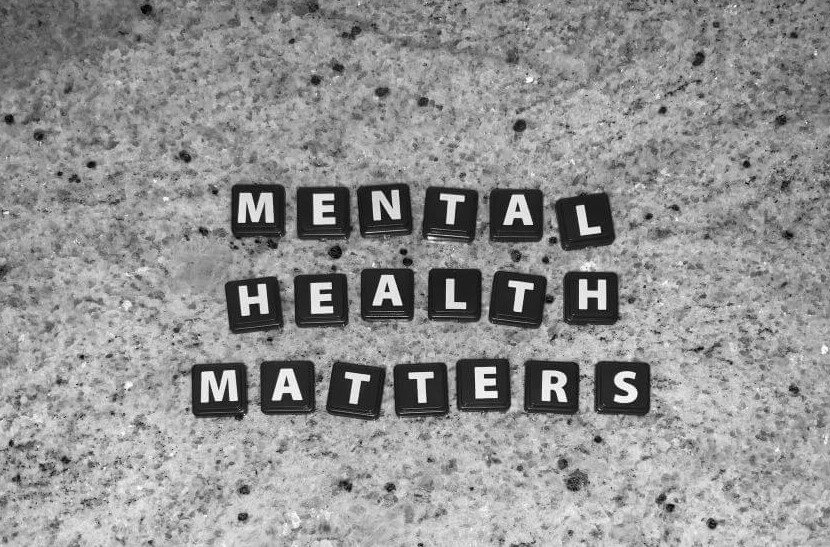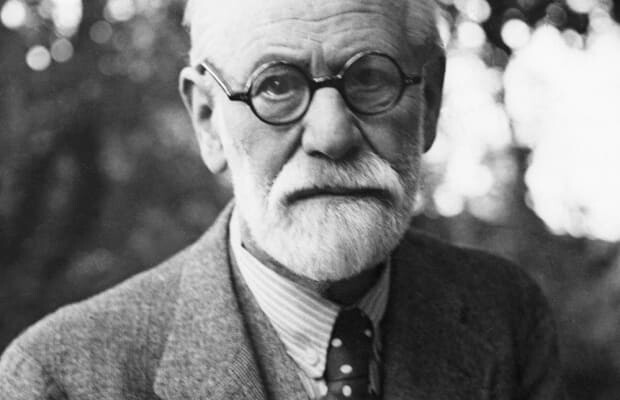
Unresolved emotional issues have the tendency to sabotage our lives and are an enemy of integrity. Fortunately, there are tools, activities, and resources that we can avail ourselves of in the pursuit of mental and emotional health. The following list isn’t intended to be exhaustive. Rather, it is more akin to an ordered brainstorming session based on years of experience, observation, and research. You can add or take away from the list as you seem fit. These items have in common that they are free of charge and can be practiced by anyone on any given day. And all but one of them can be practiced independently, although practicing them in a social context may enhance the experience.
Without further ado, I present you my top ten list of things, in no particular order, that are scientifically, observationally, and/or experientially known to improve mental and emotional health outcomes.
1. Journaling
Journaling is a form of verbal expression by means of writing. It is a DIY “mind” approach (as opposed to “body”) that facilitates emotional wellness. According to the Health Encyclopedia at the University of Rochester Medical Center, the emotional benefits of journaling include managing anxiety, reducing stress, and coping with depression. Journaling, of course, is a modern phenomenon. Widespread access to the written word is relatively recent in human history. People who are more oral-oriented may prefer speaking their thoughts and feelings rather than committing them to paper. They may even utilize a speech-to-text technology for a more hybrid approach.
Human beings are highly verbal and it is conceivable that word-based mind techniques can play some role in improving mental and emotional health for most people. In fact, counselors and therapists routinely prescribe journaling with this understanding. The intellectual-social benefits of better self-expression is a byproduct of the process.
2. Diet
People often clean up their diet in order to lose weight, be healthier, live longer, and look better. However, there are also an array of emotional benefits that accompany positive changes in diet. According to Sutter Health, “sugar and processed foods can lead to inflammation throughout the body and brain, which may contribute to mood disorders, including anxiety and depression” (diet and mood disorders). According to Harvard Health, “Multiple studies have found a correlation between a diet high in refined sugars and impaired brain function — and even a worsening of symptoms of mood disorders, such as depression” (diet and emotional health).
The mental health benefits of diet apply not only to people who are overweight and suffer from body image issues, but also to people at a regular weight who are in the habit of eating unhealthy. This realization is what prompted me to make dietary changes (e.g. cutting out added sugars and verifiably toxic preservatives) even though I was in decent physical shape for most of my life. Eating so much sugar through my teenage years and early twenties is one of my biggest regrets in life in light of what I now know.
3. Exercise
In addition to its myriad physical benefits, exercise can be a tool to improve mental health. This point hardly needs a citation, but I’ll include one anyway to illustrate the extent to which exercise is underrated in this regard. For example, a meta analysis of 23 clinical trials conducted in 2016 found that exercise is “comparable to psychotherapy and antidepressants for depression” (exercise and mental health). That’s quite striking when you think about how summarily drugs are often prescribed, in spite of their great cost and long litany of side effects, when simply moving one’s body on a regular basis can yield similar or even superior results.
Motivational speaker and life coach, Tony Robbins, has a saying “Motion creates emotion,” and routinely commends exercise as a tool that can instantly change one’s emotional state. It is quite apparent to anyone who’s ever worked out that exercise has an immediate effect on mood, and can yield exponential benefits over time.

Former Navy SEAL, ultra-marathoner, and author of best-selling autobiography Can’t Hurt Me: Master Your Mind And Defy The Odds, David Goggins, is perhaps American culture’s most prominent example of someone who medicated poor mental and emotional health with exercise. The former holder of the Guinness World Record for pull-ups in a 24-hour period channeled childhood abuse and trauma into epic feats of physical activity, a successful career in the military, and a present-day combined following on social media somewhere in the ~10 million range.
4. Meditation
Most meditation practices aim at entering a state of mindfulness, which means being mentally present in the moment (rather than ruminating on the past or experiencing anxiety over the future). One study published by Frontiers in Psychology in 2019 found that “mindfulness [is] related to lower levels of depression and anxiety both directly and indirectly” and that meditation “reduced anxiety and depression indirectly by promoting mindfulness” (meditation and mental health).
We live in a hyper-stimulated age. I have had an iPhone for around a decade, yet the novelty and incredible power of the technology has not been lost on me for a single day. Nowadays, it’s almost impossible to be bored. While that may seem great on the surface, a lack of super-stimuli has been the norm for 99.9% of human history. When we are not intensively taking in information from our environment (ie when we are resting), our brains can efficiently process thoughts and emotions and function to keep us in good health. On the other hand, constant stimulation allows a backlog to develop that can engender physical and mental disorders. When we intentionally slow down, via meditation, quiet time, etc., some of these effects can be reversed.
It’s a disease [constant stimulation afforded by smartphone technology]. It’s actually the road to misery. And now that I’m older, I realize that you actually want to, again, rest your mind. You want to learn how to settle in to your mind. Now, I look forward to solitary confinement. You leave me alone for a day, it’ll be like the happiest day I’ve had in a while. And that is a superpower that I think everybody can obtain.
Naval Ravikant
5. Fasting
The physical health benefits of fasting done in an appropriate manner are well-attested. The emotional benefits, however, often don’t get a lot of fanfare. Eating unhealthy and/or overeating creates stress in the body and makes it harder to process emotional stressors and traumas. Improving diet per #2 above, and total abstinence from consumption of food for periods of time, can have the opposite effect. This one is more from my personal experience, which I have written about extensively elsewhere.
However, I did come across a few studies that may have implications for this item. For example, a team of researchers summarizing past studies noted “Both basic and clinical investigations indicated that short-term calorie restriction might induce an antidepressant efficacy in depression, providing a novel avenue for treatment” (fasting and emotional health). In addition, animal and human studies have found that fasting/calorie restriction can enhance fear extinction and inhibit the return of fear (fasting and fear).
As with many other domains of personal growth, the question isn’t whether we can improve our physical and mental health by implementing changes, the question is whether we value function or short-term gratification more.
Disclaimer: You should consult your doctor and exercise common sense before undergoing a fasting regime of any length.
6. Dream Therapy
Austrian psychologist and founder of psychoanalysis, Sigmund Freud, described dreams as “the royal road to the unconscious.” Dreams, Freud understood, were not randomized phenomena with no basis in reality but actually carried insights and clues into the subconscious mind. Given the powerful influence of the subconscious mind on conscious life, it followed that the information contained in dreams could be used to treat disorders, improve emotional health, and improve the quality of life.
Dream therapy is a term used to describe a technique whereby dreams, including recurring dreams, are explored and analyzed to help understand stressors. Most forms of dream therapy involve journaling. An example might be keeping a notebook by the bed and recording material upon awakening. Others voice record images with a device, like a smart-phone or a tape recorder.
PsychCentral On Dream Therapy
Oftentimes, when we make a habit of paying attention to our dreams, we start to remember them more frequently and more vividly. In my experience, we can enhance the naturally therapeutic effects of dreams by consciously recalling themes, stimuli, and imagery present therein, and intelligently making sense of them in light of our lived experience, both past and present.
People will often report that with this additional focus on dreams, their dream life becomes more active, emotionally alive, and vivid. . .
James Alexander in “The Hidden Psychology Of Pain”

7. Hobbies
A hobby is an activity that we enjoy doing for its own sake. According to the Department of Health of the Australian Government, “Research shows that people with hobbies are less likely to suffer from stress, low mood, and depression” (hobbies and emotional health). You may enjoy creating or consuming art, whereas someone else may enjoy lifting heavy weights and braving the elements. For people who do not have any hobbies, this item begins with a process of discovery. For people who do have hobbies, then reaping the mental and emotional health benefits is a matter of prioritization.
As a case in point, I enjoy foreign languages, exercise, hiking, spending time outdoors, webmaking, and researching and writing blog articles like this one.
Your interests may be creative, athletic, academic, or something distinctly personal. You may choose a hobby that you can do alone or as part of a group. Whatever your interests are, there is sure to be a hobby out there for you. What matters is that it is something you find meaningful and enjoyable.
Australian Department of Health
8. Spending Time In Nature
I live in a state in the American Midwest (Ohio) known for its long winters, cloudy days, and seasonal affective disorder for a good portion of the year. People around the world, however–even those who live in tropical climates–suffer from a shortage of natural exposure. This is because most people work indoors the majority of the day, and have little time for outdoor activities. The traditional 9-5 window also happens to coincide with the time when Vitamin D from sun exposure tends to be most available in many parts of the world.
Nature-deficit disorder is not a formal diagnosis, but a way to describe the psychological, physical and cognitive costs of human alienation from nature, particularly for children in their vulnerable developing years.
Richard Louv
Nature has sustained human life, not just physically, but mentally and emotionally, throughout our history, and it is only recently where spending hours in nature every day has become the exception, not the rule. According to the American Psychological Association, exposure to nature has been linked to a host of benefits, including “improved attention, lower stress, better mood, reduced risk of psychiatric disorders and even upticks in empathy and cooperation” (nature and mental health).
There is mounting evidence, from dozens and dozens of researchers, that nature has benefits for both physical and psychological human wellbeing. . . You can boost your mood just by walking in nature, even in urban nature. And the sense of connection you have with the natural world seems to contribute to happiness even when you’re not physically immersed in nature.
Lisa Nisbet, PhD
Many of the happiest memories of my life were spent outdoors in the company of friends and family. Whether the same is true of you, there is a generally positive correlation between time spent in nature and mental health outcomes.
9. Healthy Social Relationships
This one might as well be #1, but this article has primarily focused on things we can do independent of others. Reality is that #9 is the single most important variable in the mental and emotional health equation. That isn’t to suggest that having quality relationships is a panacea for all issues mental and emotional. However, all things equal, healthy relationships promote mental health, whereas unhealthy ones contribute to its erosion.
A systematic review published in SSM – Mental Health, in December of 2021, entitled “The social route to mental health: A systematic review and synthesis of theories linking social relationships to mental health to inform intervention” found that “Quality and content are central to separating beneficial relationships from those that are not beneficial. Findings support the potential of interventions based on social relationships to improve mental health but highlight the need to consider the circumstances where relationships might do more harm than good” (social relationships and mental health).
Obviously, the key word with #9 is “healthy.” I would wager that we all have at least one family member or friend who falls into this category, and if we don’t then we may do well to find people we trust to spend more time with.
10. Developing A Spiritual Life
A spiritual life can insulate people from some of the traumas and tribulations of the material world. It gives people a sense of being connected to something greater than themselves in the macro that supplies perspective and resources for dealing with issues in the micro. WebMD enumerates a number of potential benefits of spirituality, many of which are mental and emotional in nature (mental health benefits of spirituality).
You may feel a higher sense of purpose, peace, hope, and meaning. . . You may experience better confidence, self-esteem, and self-control. . . It can help you make sense of your experiences in life. . . When unwell, it can help you feel inner strength and result in faster recovery. . . Those in a spiritual community may have more support. . . You may work at better relationships with yourself and others.
WebMD

